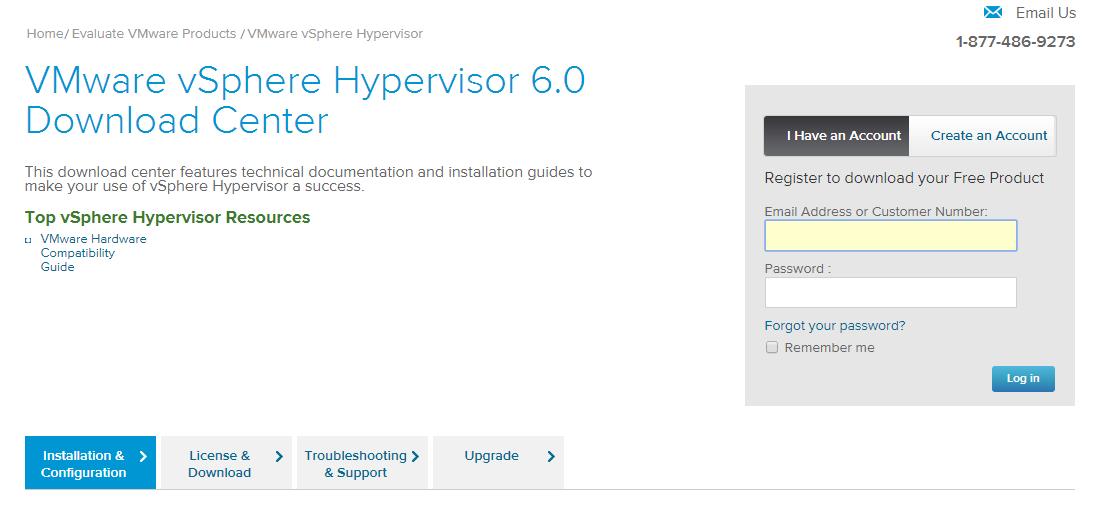If you have physical access to the host or remote access to the direct console, you can use the direct console to access the ESXi license key. Procedure ♦ From the direct console, select View Support Information.
- Below AppNee collected and sorted out hundreds of universal License Keys for all major versions of VMware Workstation Pro (not for VMware Workstation Player) 4.x, 5.x, 6.x, 7.x, 8.x, 9.x, 10.x, 11.x, 12.x, v14.x, v15.x and v16.x on Windows and Linux platforms (support both 32-bit and 64-bit operating systems) in this single post.Besides, we also provide some license keys for other projects of.
- Vmware VSphere ESXi 6.0 free license key. How to obtain the free key and download.
- The VMware Compatibility Guide lists both ESXi 5.5-based, ESXi 6.0 and ESXi 6.5-based drivers as supported with ESXi 6.5. See Knowledge Base article 2147697. Important information regarding the use of Download Manager with certain Browser and OS combinations.

- The vSphere 5.x, 6.x and 7.x releases require different license keys. It is not possible to use vSphere 5.x licenses on vSphere 6.x. The same is true when upgrading from vSphere 6.x to 7.x. For information on upgrading license keys, see How to upgrade license keys in My VMware (2006974).
- When upgrading between different 6.x releases or between different 7.x releases, the existing licenses work and enable the features of the software once upgraded. For example, the ESXi 6.7 features are automatically enabled after you upgrade from ESXi 6.5 to 6.7. Please view Important information before upgrading to vSphere 6.5 (2147548) and Important information before upgrading to vSphere 7.0 (78487).
- You can view and manage your license keys in My VMware. For information on viewing your license keys, and for links to information on managing your license keys, see How to view license keys in My VMware (2006831).
- vSphere 7.0 requires one CPU license for up to 32 physical cores. If a CPU has more than 32 cores, additional CPU licenses are required as announced in 'Update to VMware’s per-CPU Pricing Model'. Prior to upgrading ESXi hosts, you can determine the number of licenses required using the license counting tool described in 'Counting CPU licenses needed under new VMware licensing policy'. For additional information, see the License Management section in the vCenter Server and Host Management Guide.
William Lam brought up some feedback on Socialcast the other day. The story was of a customer who updated to ESXi 6.0 Update 2 and the SSH keys he was using no longer worked. Morphvox pro 4.4.7 serial key. The customer was advocating for changing the file /etc/sshd_config so that he could continue to use the keys on his ESXi server. IMHO, that’s the wrong course of action.
ESXi 6.0 Update 2 has shipped with an updated version of OpenSSH. The version has been updated to 7.1p1. One of the major changes in this release is the disablement of “ssh-dss” and “ssh-dss-cert-*” (a.k.a DSA) keys. They have also announced the future deprecation of legacy cryptography. I urge you to read more about these changes as they may impact you in other places in your infrastructure.
Now, the customer had added dss keys to the /etc/authorized_keys file so that he could easily log into his ESXi system. Ok, I get that. Adding authorized keys is a supported configuration outlined in this KB.
What happened is that now that ESXi 6.0 U2 is running the new OpenSSH bits his SSH connections were refused. This is expected behavior! This issue could be remediated by generating new keys using RSA keys. As I said above, that is the wrong course of action. You put your ESXi host at risk for convenience?
Please don’t bring up the “but DSA keys are faster/less overhead/etc” argument. I’m pretty darned sure that OpenSSH is using AES-NI instructions (I looked) that are plenty fast for a simple SSH session. Opera mini 9.5 free download for java phones. Performance is no longer an excuse to use less security! It’s 2016.
adobe open on download mac Bottom line, if you are using Authorized Keys on your ESXi server and they were generated with DSA keys, it’s time to be proactive and re-generate them with RSA keys.
Final note: Limit who can log into your ESXi host. Only those you trust the most should have access. If you are logging in to “run scripts and stuff” (as many customers tell me they do) then you might want to look into using tools like the vSphere API and scripting tools like PowerCLI or Python.
If you have something you CAN’T do via API or scripting, please let us know! Reply here or send email.
Vmware Esxi 6.7
Thanks for reading!
Vmware Esxi 7.0
If you liked these posts, please let me know! If you have comments, please reply here, to @vspheresecurity or @mikefoley on Twitter or via email to mfoley@VMware.com or mike@yelof.com